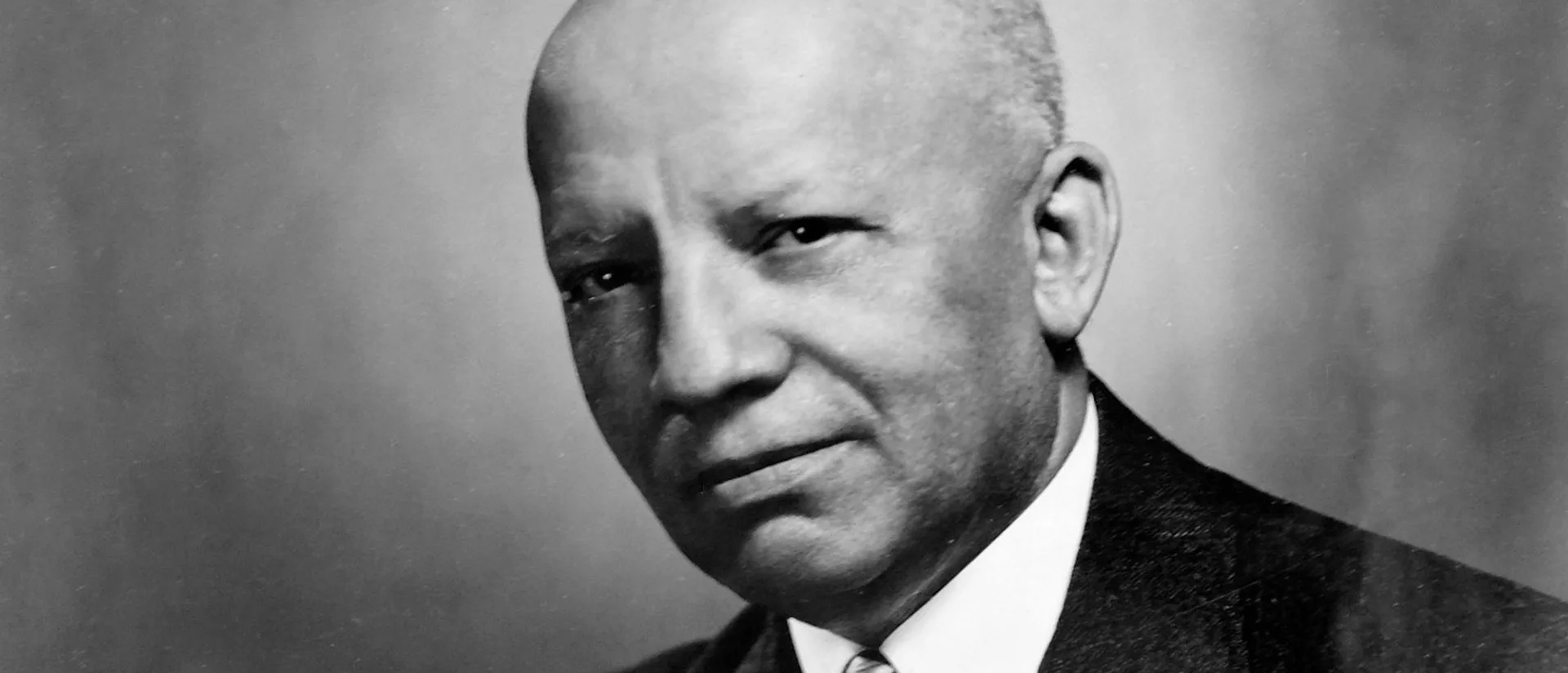Dr. Carter G. Woodson (1875-1950) dedicated his life to educating African Americans about the achievements and contributions of their ancestors.
 In 1915, Carter G. Woodson traveled to Chicago from his home in Washington, D.C. to take part in a national celebration of the 50th anniversary of emancipation. He had earned his bachelor’s and master’s degree at the University of Chicago, and still had many friends there. As he joined the thousands of Black Americans overflowing from the Coliseum, which housed exhibits highlighting African American achievements since the abolition of slavery, Woodson was inspired to do more in the spirit of celebrating Black history and heritage. Before he left Chicago, he helped found the Association for the Study of Negro Life and History (ASNLH). A year later, Woodson singlehandedly launched the Journal of Negro History, in which he and other researchers brought attention to the achievements of Black Americans.
In 1915, Carter G. Woodson traveled to Chicago from his home in Washington, D.C. to take part in a national celebration of the 50th anniversary of emancipation. He had earned his bachelor’s and master’s degree at the University of Chicago, and still had many friends there. As he joined the thousands of Black Americans overflowing from the Coliseum, which housed exhibits highlighting African American achievements since the abolition of slavery, Woodson was inspired to do more in the spirit of celebrating Black history and heritage. Before he left Chicago, he helped found the Association for the Study of Negro Life and History (ASNLH). A year later, Woodson singlehandedly launched the Journal of Negro History, in which he and other researchers brought attention to the achievements of Black Americans.
Born in 1875 in New Canton, Virginia, Woodson had worked as a sharecropper, miner and various other jobs during his childhood to help support his large family. Though he entered high school late, he made up for lost time, graduating in less than two years. After attending Berea College in Kentucky, Woodson worked in the Philippines as an education superintendent for the U.S. government. He earned his bachelor’s and master’s degrees at the University of Chicago before entering Harvard. In 1912, three years before founding the ASNLH, he became only the second African American (after W.E.B. DuBois) to earn a doctorate from that institution.
Like DuBois, Woodson believed that young African Americans in the early 20th century were not being taught enough of their own heritage, and the achievements of their ancestors. To get his message out, Woodson first turned to his fraternity, Omega Psi Phi, which created Negro History and Literature Week in 1924. But Woodson wanted a wider celebration, and he decided the ASNLH should take on the task itself.
In February 1926, Woodson sent out a press release announcing the first Negro History Week. He chose February because the month contained the birthdays of both Abraham Lincoln and Frederick Douglass, two prominent men whose historic achievements African Americans already celebrated. (Lincoln’s birthday was February 12; Douglass, who was formerly enslaved, hadn’t known his actual birthday, but had marked the occasion on February 14.)
As schools and other organizations across the country quickly embraced Woodson’s initiative, he and his colleagues struggled to meet the demand for course materials and other resources. The ASNLH formed branches all over the country, though its national headquarters remained centered in Woodson’s row house on Ninth Street in Washington D.C. The house was also home base for the Associated Publishers Press, which Woodson had founded in 1921.
Visits: 5
